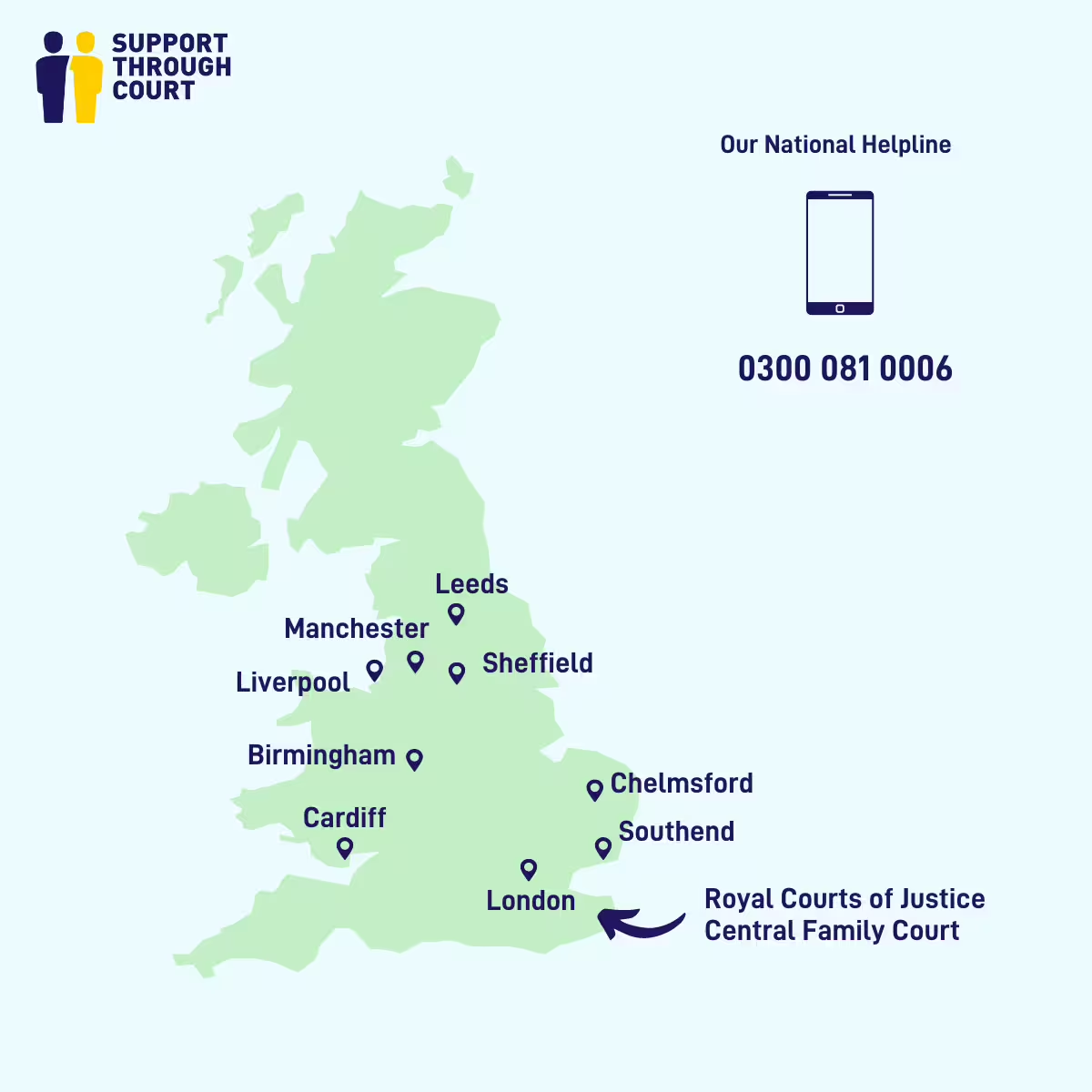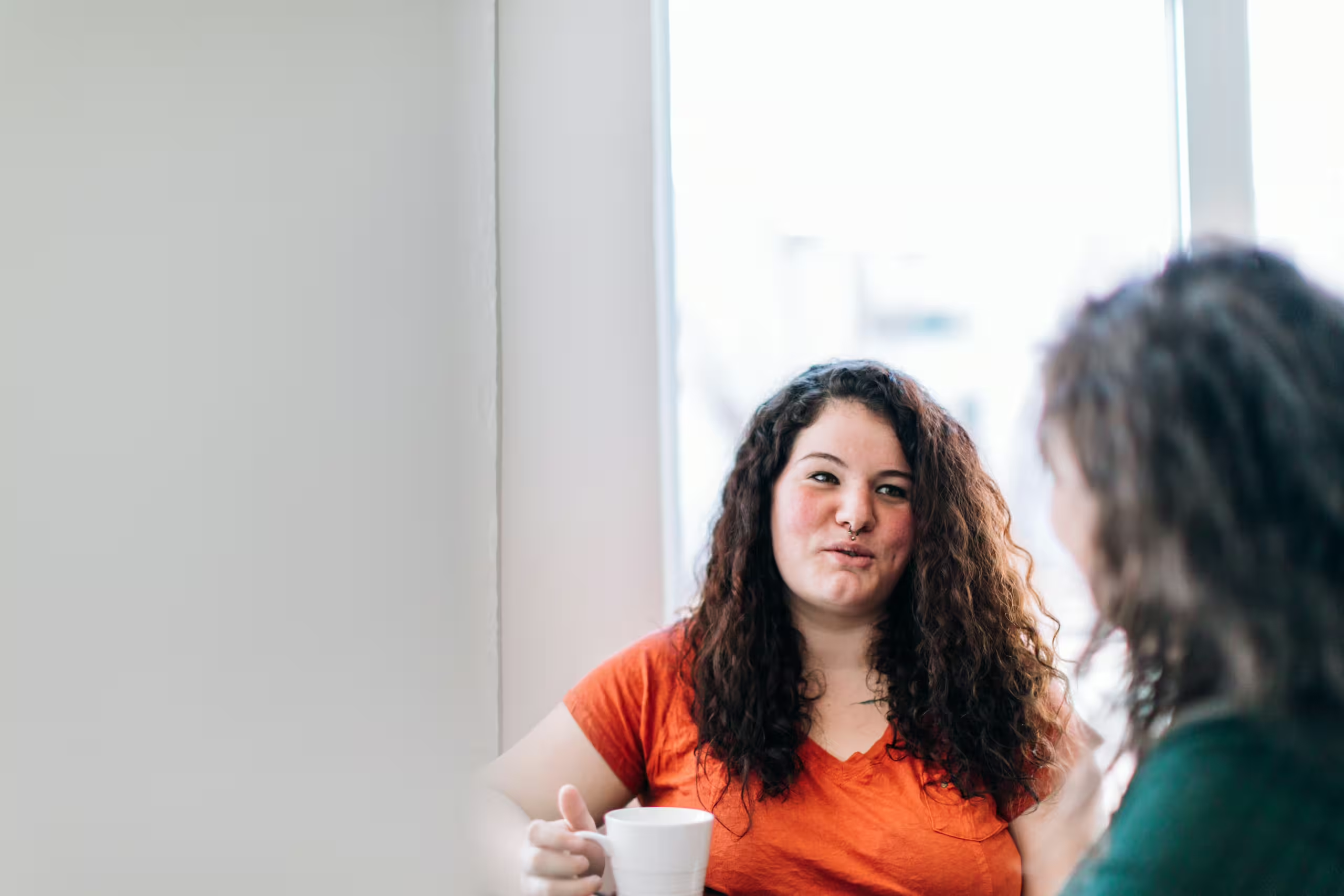Read our FAQs to find out more about how we support people facing court alone. Can’t see what you’re looking for? Find out more about how we help, or book an appointment.
Will you support me in any family or civil court?
Our charity operates in many civil and family courts in England and Wales. For details of the court buildings we work in please view our locations.
What are your opening times?
Most offices are open from 9.30am to 4.30pm, but please check opening hours for your local service.
Do I need an appointment?
Please contact your nearest service to check local arrangements.
How many times will I be able to come for help?
We provide support as many times as required but we encourage clients to do things for themselves where they can. If we are busy, we may need to limit the time we give to you.
Will I be able to bring a friend or relative to accompany me?
Yes, if you think that would be helpful. Sometimes it’s useful to have another person listening to the same conversation. Your friend or relative may not be allowed into a hearing.
Can you look after my children while I’m in my hearing?
No, neither does the court encourage bringing children to hearings so please make alternative arrangements for them for when you have a hearing.
Can you give me legal advice?
No, we are not legally trained. We offer practical and emotional support to people facing court without a lawyer. In some instances, we can signpost you to other agencies that may be able to help.
Are you able to help me find free legal advice?
Where possible we will provide you with information about where to find free legal advice in the local area. The amount of free legal advice available is different in every area and will depend on the type of case you are involved in.
Is there a charge for your service?
No. Our service is free, independent and confidential.
Can I bring the evidence for my case to show you?
Yes, but we cannot give you an opinion on whether it’s important for your case or not. We can help you organise your paperwork if you wish.
Could a volunteer accompany me to my hearing?
Yes. We can come with you to your hearing, but we cannot speak on your behalf. We can sit next to you, take some informal notes and discuss any next steps with you after the hearing has finished.
Can you help me over the phone?
Yes. As well as our court-based face to face services, we offer a national helpline on 0300 081 0006.
Can you help me complete court forms?
We can help you navigate and complete the relevant sections of many court forms, but we cannot advise you what’s best to write for your case. Please be aware that while we have a wide range of experience in the Civil and Family courts, there may be some areas that our volunteers are not familiar with.
I’m interested in volunteering for you. Where can I find more information?
You can find out more about volunteering with one of our services and get in touch if you’re interested.
How can I support your charity?
There are several ways to support us including making a donation, becoming a Friend, organising a fundraising event and providing facilities for volunteer training. Find out how you can support us.



